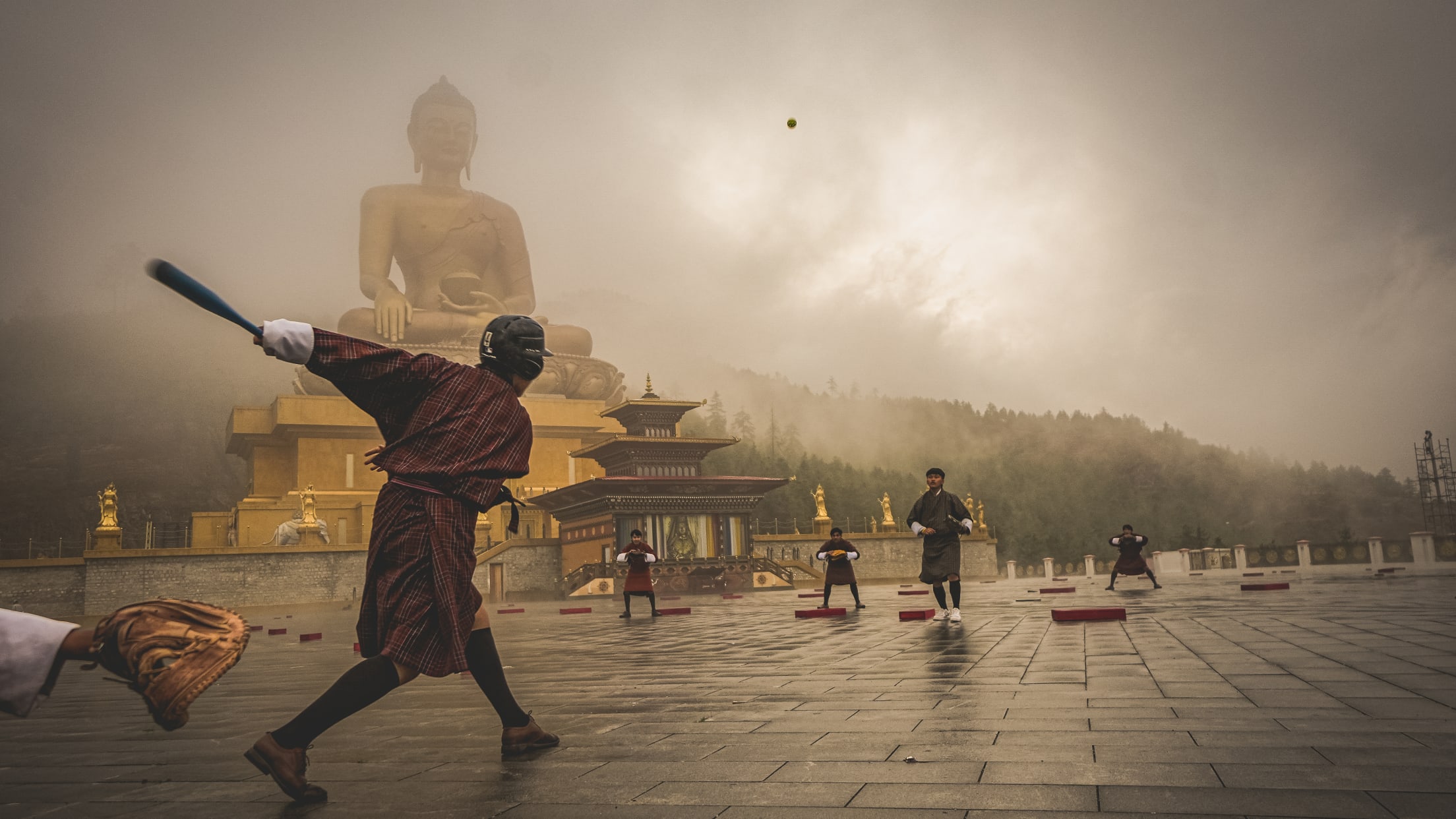
In the mountains of the world's most remote country, baseball takes hold

High up in the Himalayas between Tibet and India sits the small Buddhist country of Bhutan. Sometimes known as the world's last Shangri-La, this nation of snowy alpine peaks and untouched mountain streams has fewer than 700,000 people who call it home. And yet perhaps the most remote country in the world is on its way to being a baseballing nation, growing from a few dozen kids playing on a concrete slab after school to more than 6,000 children who are fast becoming baseball fanatics despite few having ever seen a Major League game.
"Everything from the friendship I grew with my father to my brothers to everyone in my town growing up, it was all based around baseball," Matthew DeSantis, the co-founder and chairman of the Bhutan Baseball and Softball Association told me during a recent visit to New York. "From a community perspective in Bhutan, it was a way for me to both be involved stronger, and also to give something back that I thought the kids would love and connect over."
Soft-spoken and thoughtful, DeSantis was dressed in a warm brown gho -- a robe-like cloth that is part of traditional Bhutanese garb on the day we met. Though his trip to New York brought him close to where he grew up in nearby Wilton, Conn., you get the feeling that Bhutan is where he always belonged. Oddly enough, baseball wasn’t how DeSantis first discovered the small country, but rather its prince, Dasho Jigyel Ugyen Wangchuck, whom he met on the school basketball team while attending Choate Rosemary Hall in Wallingford, Conn. (The country is now a parliamentary democracy, but the royal family still holds its titles -- similar to the monarchy in England.)
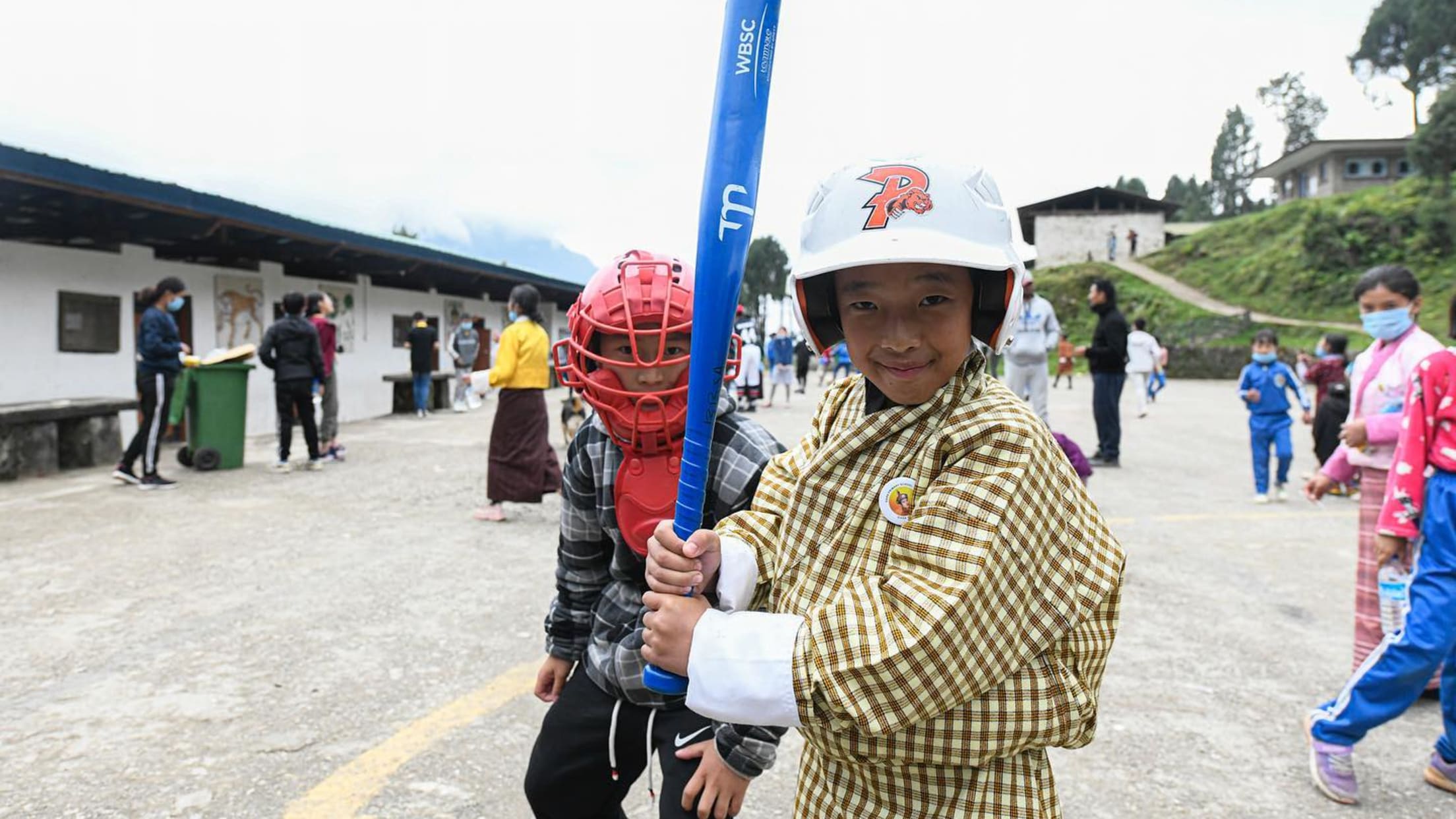
After DeSantis’ first three weeks in the country, where he trekked through the dense southern rainforest and stayed in roadless villages, he decided to move there for good. It was while founding the tech company and luxury travel operator MyBhutan, which helped visitors explore the region, that DeSantis met Karma Dorji -- now the president of the baseball association -- who "had a strong passion to bring sports to the kids and make it accessible and free."
They had no grand design on establishing a baseball association, though: The two simply loved baseball -- DeSantis learning the game back in America, while Dorji fell in love while attending the World Children's Baseball Fair in Japan -- and wanted to offer it to the children who lived nearby the military barracks in Thimphu.
"We should start baseball," DeSantis told Dorji. "Let's do some weekend clinics and volunteer work."
They had to make do with what they had, though. The mountainous terrain makes finding large open fields difficult, and they needed to host it at a central location so all the kids who wanted to play could. That meant that the start of Bhutan baseball began on a large concrete slab.
"There was no organization, there was no institution back then," Dorji said in a phone call. "First thing we did is make a few social media posts. 'Hey guys, we're playing baseball this weekend. Anybody interested? Please show up.'"
To their surprise, about 50 or 60 kids arrived, ready to play a sport they had never seen.
"Traditionally, the sports in Bhutan are archery and darts," DeSantis said. "TV and Internet didn't even arrive in Bhutan until 1999 and 2000. It's one of the last countries to introduce both. So, it was really they'd show up and they learned. MLB, KBO, nothing's being broadcast. So no one really saw or knew of the sport until they were on the field."
As for the coaches, it was only Dorji and DeSantis, doing their best to help teach the game to the dozens of children who arrived. They did the same thing the next week and the numbers grew, first to 100 children, then 200, then more.
With the number of ballplayers exploding, DeSantis reached out to his brother, Will, who was still in high school at the time, and asked for equipment. Wilton High School and schools from the surrounding area sent out gloves, bats and balls for the children to use -- all on that concrete pitch that was fast becoming a makeshift baseball field.
"So we had equipment, we had a space and we started by just showing up after work," DeSantis remembered. "We invited a few kids, and within three weeks we had 600, 700 kids showing up every day."
"I get very emotional when I talk about this because the baseball association is my baby. It's as old as my daughter," Dorji said.
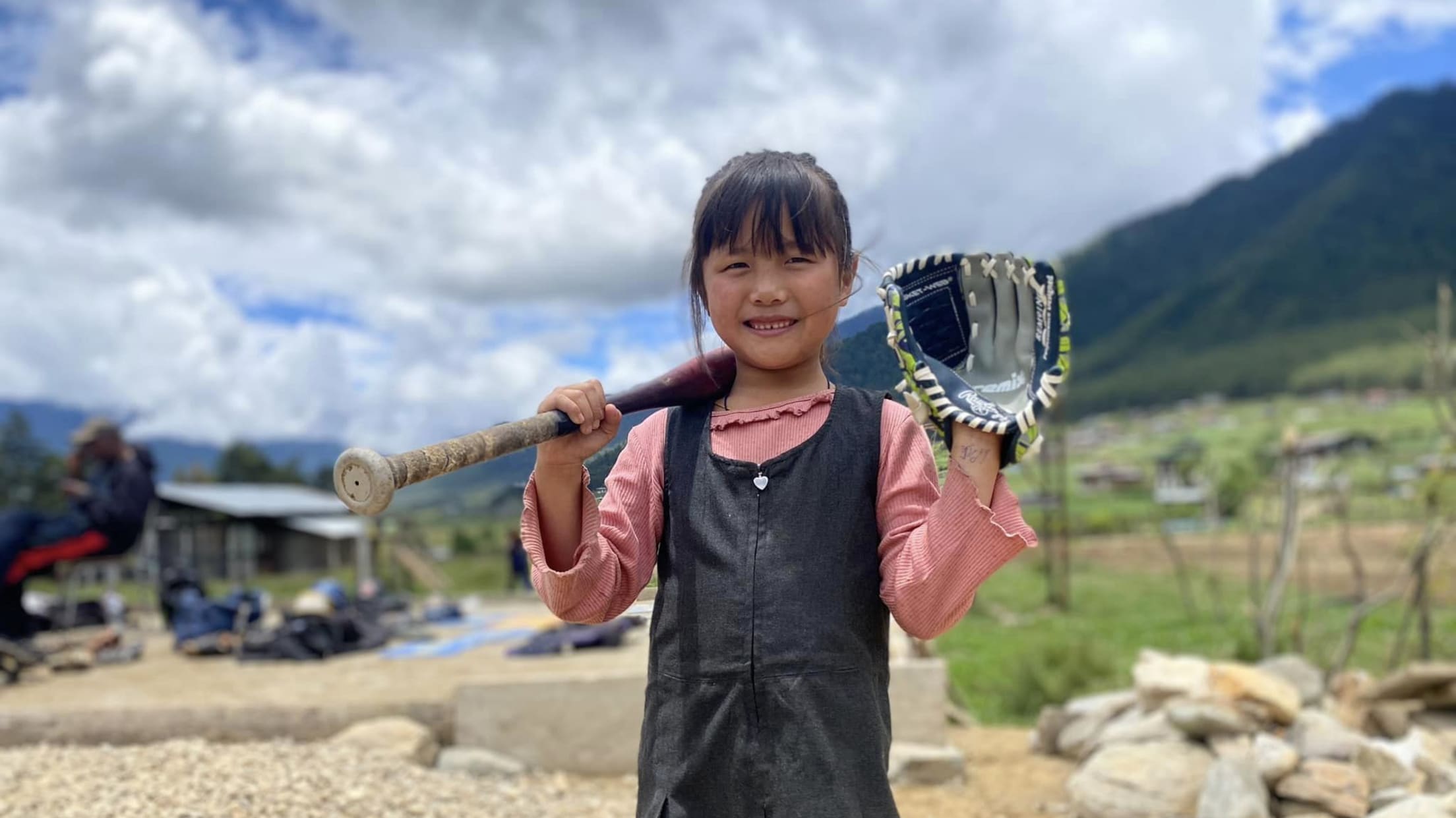
Soon, players were forming their own teams. In a country whose guiding principle is Gross National Happiness, even the team setup was done in its own unique way.
"One of the four pillars [of Gross National Happiness] is environmental conservation. Bhutan is a really special place for wildlife because of this policy. It's created a safe haven for endangered species," DeSantis said. "We thought that was something really special to recognize.” So, they started by calling their first club the Thimphu Red Pandas.
In addition to the Red Pandas, there is now the Paro Ravens, Wangdue Cranes, Phuentsholing Crocodiles, Gelephu Tuskers -- complete with a logo featuring a baseball-playing elephant giving a thumbs-up -- and Samtse Rhinos. The eventual hope is that when these clubs do eventually start earning money, those funds will go toward protecting the animals represented on their caps.
While Bhutan briefly had an adult league and hoped to establish a national team with help from the country's cricket players, the focus is currently on helping expand the game to all the children who want to play.
"Every single day, we wake up to multiple messages on our Facebook from kids all across the country saying, 'When can I play baseball?' DeSantis said. "Because we haven't reached 14 of the 20 districts. It's a bittersweet feeling because it's great to see the demand, but you wish that you could get baseball to them."
"We're focused on grassroots development, introducing the sport to different districts to different schools, public schools, private schools," Dorji said. "We're not targeting colleges or high schools because doesn't really make any sense to us. We have limited resources, and we want to plow them into kids above 5, 7, 8, 9, 13 years old, you know."
While Dorji and DeSantis were hard at work on the fields of Bhutan, they were unable to see the larger picture. Fortunately, there was Ramon Riesgo, a young man who simply stumbled on the association while Googling one afternoon. At the time, Riesgo -- now the organization's executive advisor -- was actually studying to become a priest in Pennsylvania.
"He found a small article that was done by my hometown during our early days," DeSantis remembered with a laugh. "He became huge to our growth because we were so focused on getting people on the field playing baseball. And he was saying, 'Well, how will you grow this program? Who knows about this?' And the answer was really no one."
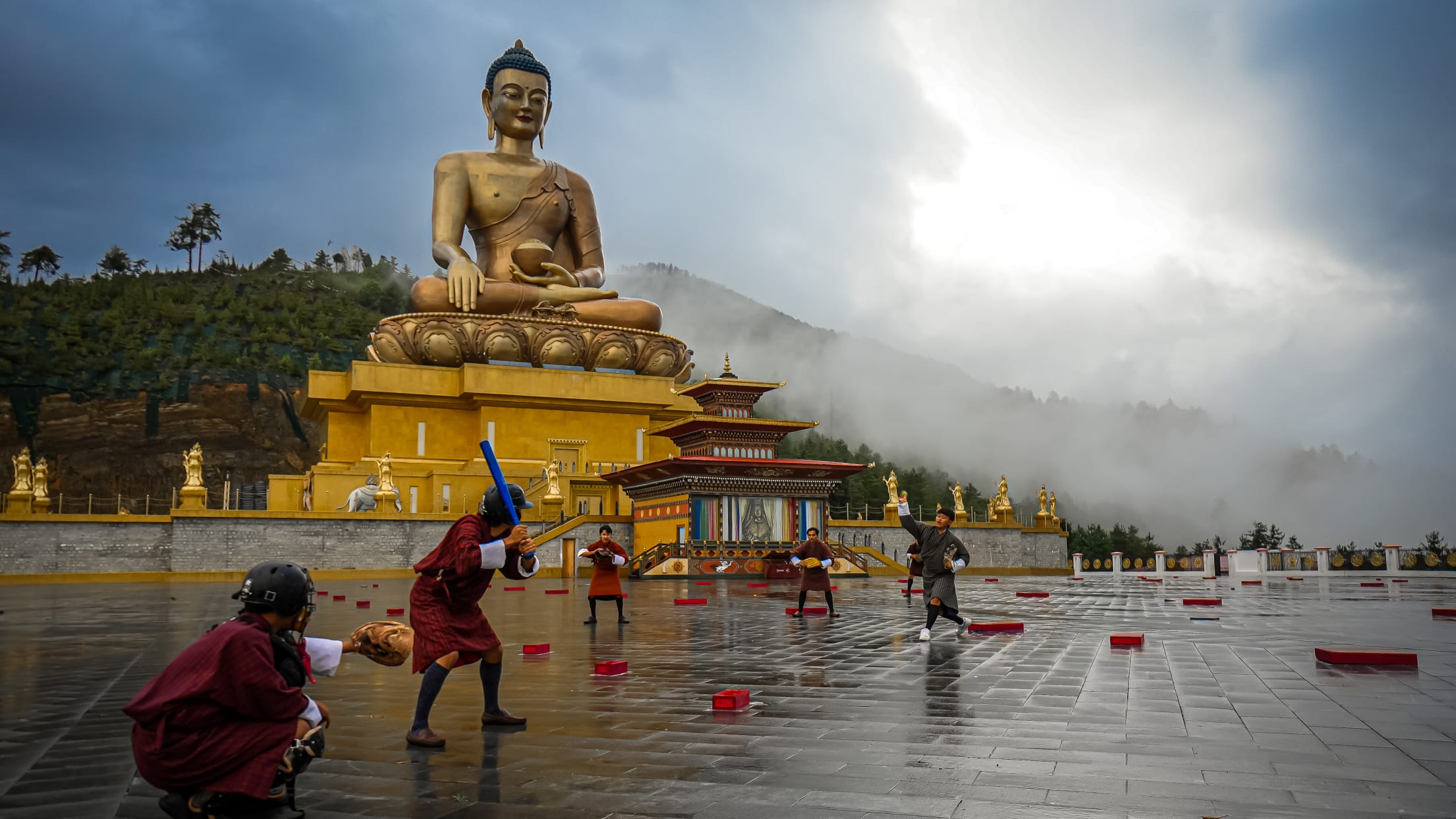
Riesgo eventually switched career goals and has recently finished grad school. His new focus is on international relations -- something that comes in handy when trying to build a baseball program in one of the most remote areas of the world.
"The pitch I always tell people is I think Bhutan has the potential to actually be a baseball country," Riesgo said. "I always compare it to Curaçao. It's small in population, but it's got the demand. All the pieces are aligned: It's got government support, it has the demand from the people, it's the fastest-growing sport in the country right now."
Riesgo started by reaching out to everyone and anyone who would listen, saving DeSantis and Dorji's time for more pressing issues inside the country. Eventually, he was asked to join them on Zoom calls at 3 a.m. from his home in San Diego. His family and friends couldn't believe this was how he chose to spend his free time, but the project was too important to give up.
"Just meeting some of the kids and see them playing this and they love it -- and they haven't even seen a professional game," Riesgo said. "This is just grassroots and it's amazing to me that people can love [this sport] without even seeing the original game. It just keeps me going, like, 'I gotta keep these kids on the field somehow or we're going to lose them.'"
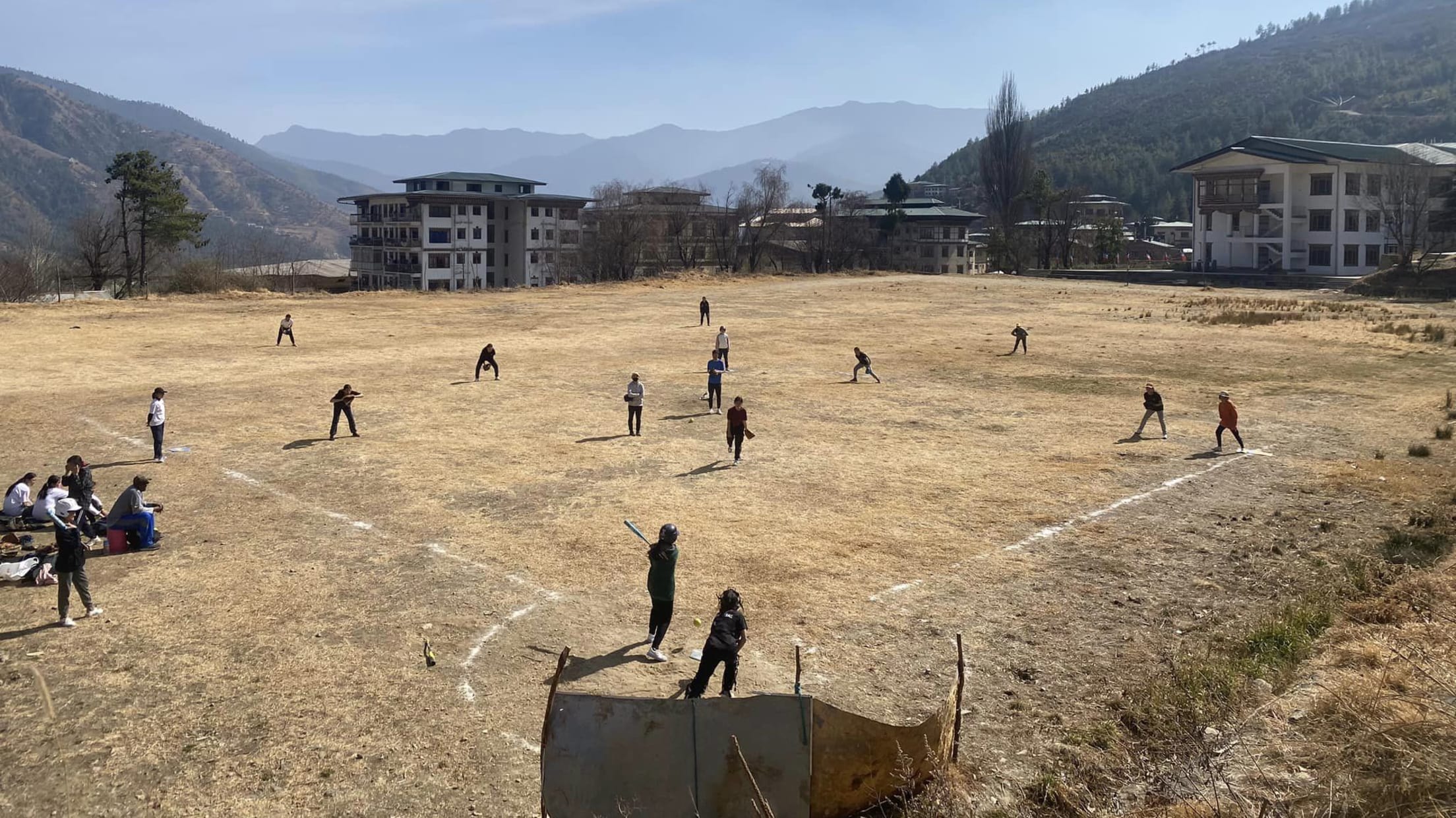
While they no longer use that concrete slab where they first started out, getting fields is still an issue. They bounce from space to space whenever one is available, and a dedicated baseball field has yet to be built. They need more experienced coaches to help improve the quality of play -- though a decade on, some of those first children who learned the sport have now started coaching themselves.
But the biggest need of all is equipment. With thousands of kids wanting to play and no easy way to get large amounts of bats and balls into the country without a large expense, it becomes difficult. One Major League team is willing to foot the price of sending an entire shipping container over, but there are additional expenses for being able to pick it up at port in India.
"There's tons of equipment in the United States for free, but no one ships it. So then those shipping funds have to come out of our main fund and that money could have gone to promote the sport in the country. It's always a Catch-22," Riesgo said.
While the eventual goal is to get baseball into all 20 districts and build a national team that can compete with nearby countries like Pakistan and India, there has already been a major breakthrough. The Bhutan Baseball and Softball Association has officially partnered with Baseball United, the upcoming league in the Middle East and Southeast Asia that has former MLB stars like Barry Larkin and Félix Hernández among its ownership group.
"As part of the agreement, one of Bhutan's baseball players will be signed to a professional contract to play in the upcoming Baseball United Dubai showcase this November," DeSantis wrote in an email. "This will be the first professional baseball player from Bhutan!"
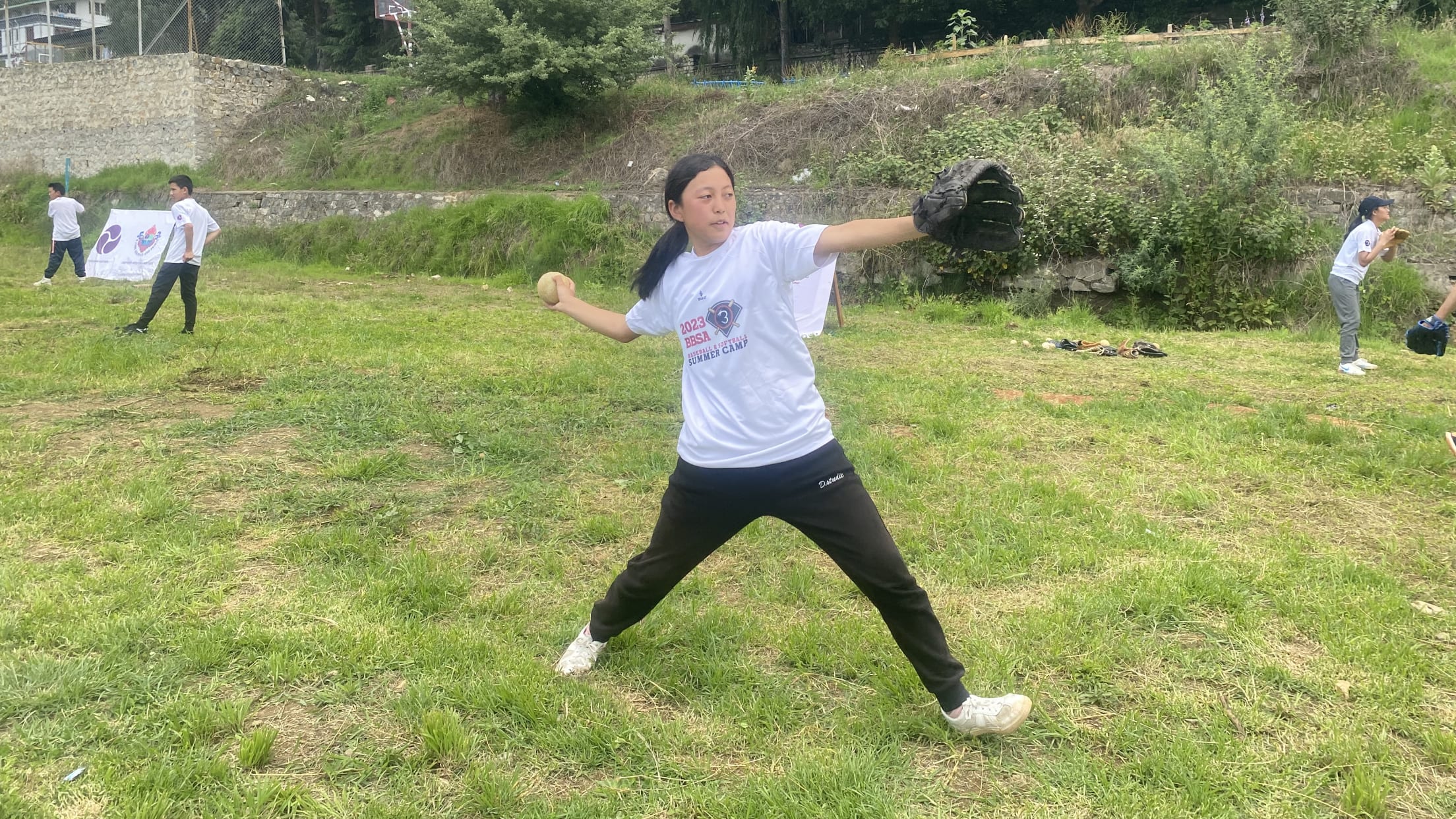
It may just be the first big leap for Bhutan to make, but as long as the kids want to keep playing, DeSantis and Dorji will be out on the fields helping teach the game.
"We are just a baby in the world of baseball," Dorji said. "But I will definitely call you in the next seven years when we have our first players being picked up by Major League clubs and by the Japanese and Korean leagues."
What started as a plan to give kids something to do for a few weeks in 2010 has become something much larger -- all because those who play it just can't stop.
"Originally, we were going to do it for two or three weeks, but the main reason we continue doing it is because kids keep showing up and they want to play," DeSantis said. "So that's our greatest success. Kids are there and they love it. They want to keep playing."